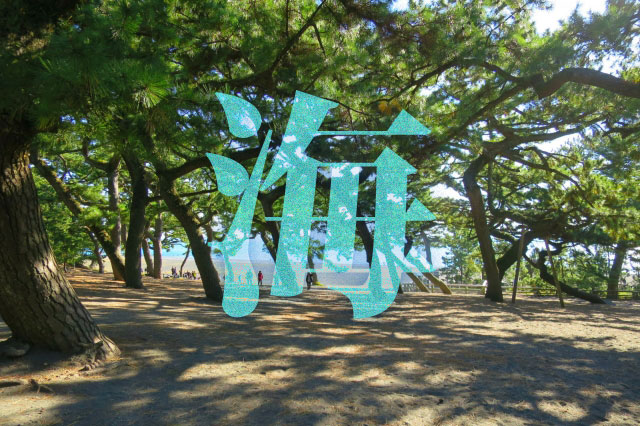Umi
Matsubara tooku kiyuru tokoro
Shiraho no kage wa ukabu
Hoshiami hamani takaku shite
Kamome wa hikuku namini tobu
Miyo hiru no umi
Miyo hiru no umiShimayama yami ni shiruki atari
Isaribi hikari awashi
Yorunami kisini yuruku shite
Urakaze karoku isago fuku
Miyo yoru no umi
Miyo yoru no umiLyricist and Composer by unknown
in 1913
Sea
Long enough to lose sight of the pine forest
The shadow of the ship’s white sail is visible
There is a net of fish that is piled high
Seagulls are flying low-flyingly
Look, this is the daytime sea
Look, this is the daytime sea
A place where the island’s shoreline is clearly visible in the dark
The light of the fishing fire looks dim
The waves gently come to the shore
The wind blowing on the beach makes fine sand dance
Look, this is the nighttime sea
Look, this is the nighttime sea

This song for elementary school students was published in the early Taisho period.
As with all shouka of this era, neither the lyricist nor the composer has been made public and remains unknown to this day.
The place where the lyrics were set has also not been identified.
And surprisingly, it has not been selected for inclusion in the “100 Best Japanese Songs,” making it difficult to understand the literary lyrics,
The lyrics are no longer included in textbooks, perhaps because of the difficulty of understanding the literary lyrics.
However, the original scenery of the summer sea in Japan, which is being forgotten, can be found here.

Passing through a forest of pine trees, perhaps a windbreak, one comes to a stretch of beach.
At a nearby fishing port, nets are drying and the smell of the sea is in the air.
All that can be heard is the charming voices of children and the sound of the waves lapping against the shore.
As dusk approaches, more and more boats with fishing lights (fish-collecting lights) are seen offshore.

Nowadays, the summer sea is a beach resort with elaborate performances for young people,
However, until around the 1970s and 1980s, the sea was known as “Kaisui Yokujyou (bathing beach).
And there were only a few huts selling yakisoba (fried noodles), uninspired ramen, curry and rice, and shaved ice.
That was the scenery of the summer sea.

Just like the song, beautiful time passed slowly and unobtrusively.
Even now, you might be able to enjoy such a scene at a beach near a not-so-famous local fishing port.

Miho no matsubara (World Heritage)




コメント